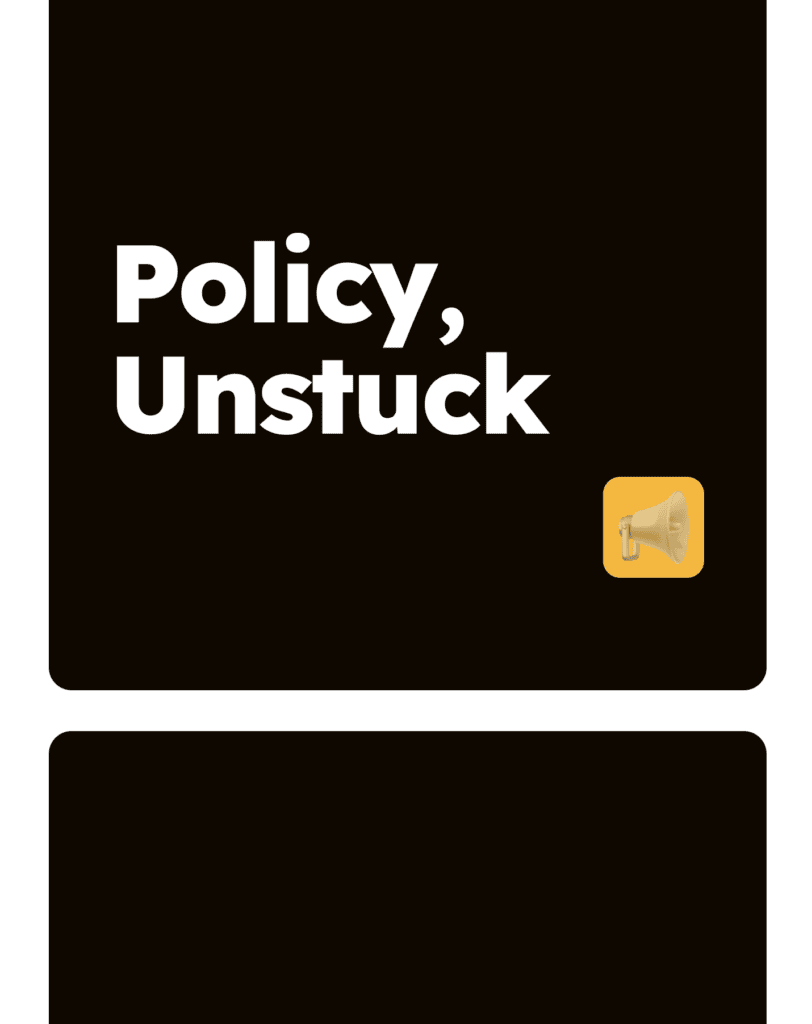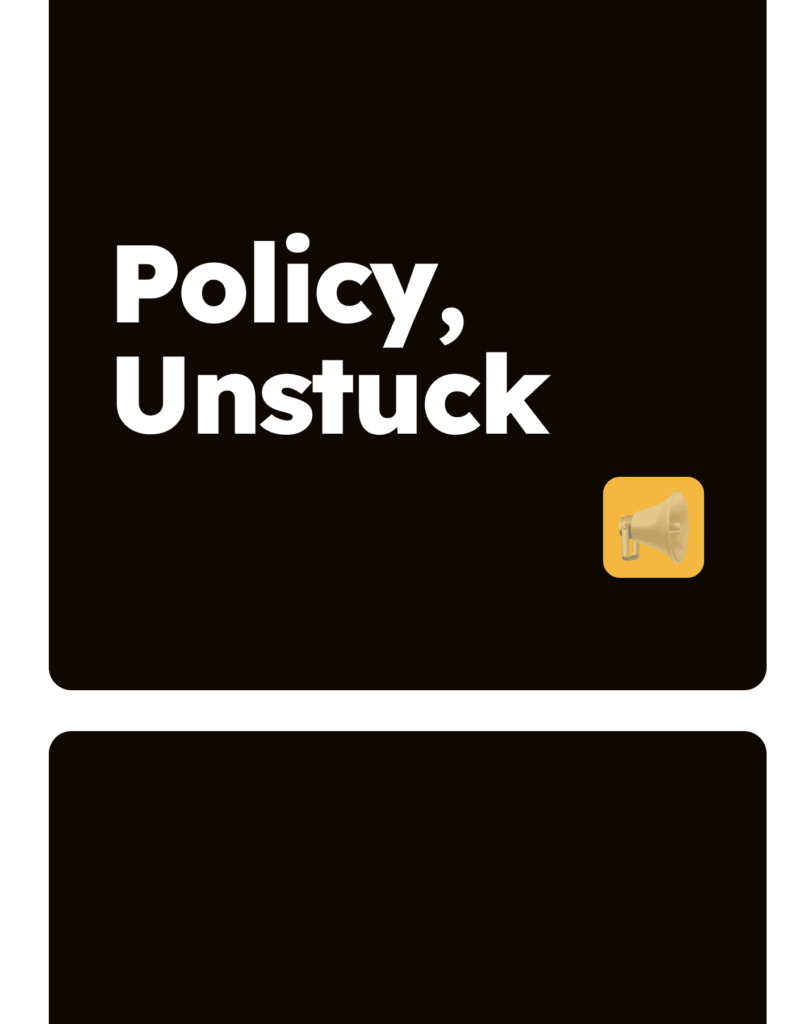#21: What ministers want – Reza Schwitzer
This interview with {REZA SCHWITZER} is part of the {POLICY UNSTUCK} series. Reza is a veteran of the UK civil service, and the current external affairs director at AQA.
Frame your stats like headlines. Instead of saying there are 400,000 children in need and over a million children who have been in need at some point in the previous six years, we changed it to ‘on average three children in every classroom have needed a social worker.’ I’m comfortable that broadly speaking this stat is right, but we framed it in a way that ministers will go, “Wow, three people in an average classroom have had a social worker. That’s a lot of kids.”
Time your financial asks with fiscal events. You can’t have individual civil servants signing off taxpayers’ money with just no scrutiny. That would be bananas. Time your financial asks with a fiscal event. That seems super basic, but they’re not going to be able to just pull money out of thin air. That’s not how it works. So, help them to help you.
Don’t flood them with information, find the hook. It’s a bit like fishing – you want to give ministers enough that they go, that’s an interesting little tidbit. And they hook onto it. And then you want them to drive the meeting. If they say some things that aren’t quite right or they’ve misunderstood, that’s not the end of the world. The important thing is that by the end of the meeting they think that your thing is interesting.
Show them what their civil servants cannot. Value to a minister often means ‘I’ve been told something I didn’t know’. A classic case of value-add is when all their civil servants are saying X, and you come in with one stat showing the public are not in the same place as their civil servants. Another classic is people from the sector who come in and tell them how stuff really is on the ground. They don’t want people reading off a script. They want people who are going to add value by being creative, bringing something fresh.
Disagree privately at first, publicly later. If you’ve got a relationship with a minister and disagree with what they are doing, ring them up or try and get a meeting. I’ve certainly seen ministers blacklist people because they’ve come out publicly and criticised something without coming and talking to them first. Don’t come across as being oppositional for the sake of it. The better approach is more like “Look, we get what you’re trying to do, but there’s this really specific problem we need to talk about because it’s going to be an issue.”
Focus your research where your argument is weakest. The key thing is to ask beforehand what bit of your story is the minister least likely to agree with or accept, and focus your energy on research and evidence that’s going to reinforce that point. What I think some people do is come with 20 stats and the minister’s like yeah I already knew that or I already agreed with that bit. That doesn’t help anyone. The research needs to support you where you need it – and you need to figure that out before you commission it, not as you’re walking into the meeting.
Locally-focused, tangible campaigns trump research. One of the most effective campaigns I’ve had run against me was when I worked in the school funding unit. The school cuts campaign had a fully interactive website where any parent could go on and see exactly how many teaching assistants would be cut based on the reduction in funding their local school would get. We had issues with the methodology and didn’t agree with a lot of it. It didn’t matter – they won the argument. That’s why in the 2017 election, school funding was one of the number one issues on the doorstep. The methodology was good enough. Don’t let perfect be the enemy of the good when it comes to research. They used some data, did some calculations, it was broadly right and they nailed it.



